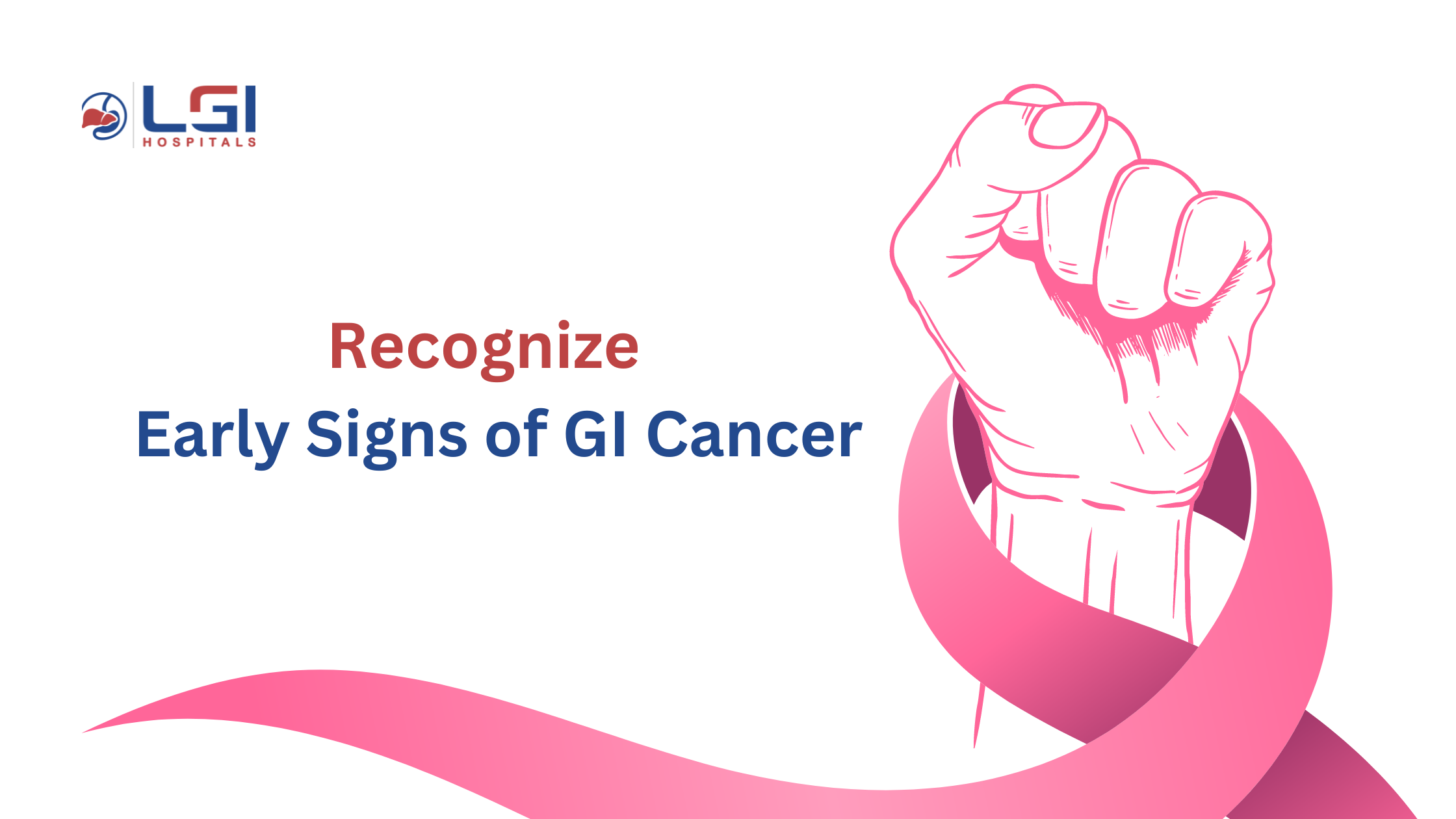Gastrointestinal (GI) cancer encompasses various cancers affecting the digestive system, including the esophagus, stomach, liver, pancreas, colon, and rectum. Recognizing early signs is vital for improving prognosis and treatment success. At LGI Hospitals, we are dedicated to providing comprehensive care and cutting-edge diagnostics to detect these cancers early. This blog will guide you through the early signs of GI cancer and how LGI Hospitals can help.
Understanding Gastrointestinal Cancer GI cancer refers to cancers that develop in the digestive tract. The most common types include esophageal, stomach, liver, pancreatic, and colorectal cancers. Understanding how GI cancer affects the body can help in recognizing symptoms early.
Common Risk Factors
- Age: Risk increases with age.
- Family History: Genetic predisposition can play a role.
- Diet and Lifestyle: High-fat, low-fiber diets and smoking are risk factors.
- Medical Conditions: Conditions like Crohn’s disease or ulcerative colitis can increase risk.
Early Warning Signs and Symptoms
- Unexplained Weight Loss: Significant weight loss without a known cause can be a red flag.
- Persistent Abdominal Pain or Discomfort: Ongoing pain or discomfort may indicate a GI issue.
- Changes in Bowel Habits: Diarrhea, constipation, or blood in the stool can signal colorectal cancer.
- Difficulty Swallowing: Trouble swallowing may suggest esophageal or stomach cancer.
- Persistent Nausea or Vomiting: Ongoing nausea or vomiting, especially with other symptoms, warrants investigation.
- Fatigue and Weakness: Chronic fatigue or weakness can be a sign of anemia from internal bleeding.
The Importance of Early Detection
Early detection of GI cancer improves treatment outcomes. Regular screenings and paying attention to symptoms are crucial for catching cancers early. LGI Hospitals offers advanced diagnostic tools and expert care to aid in early detection.
Diagnostic Procedures at LGI Hospitals
- Endoscopy and Colonoscopy: Essential for visualizing and sampling tissues.
- Imaging Scans: CT scans, MRI, and PET scans help assess the extent of the disease.
- Biopsy: Provides definitive diagnosis by examining tissue samples.
- Blood Tests: Can reveal markers associated with cancer.
Treatment Options at LGI Hospitals
- Surgery: To remove tumors and affected tissues.
- Chemotherapy and Radiation Therapy: For targeted treatment of cancer cells.
- Targeted Therapies: Focus on specific cancer cell mechanisms.
- Personalized Care: Customized treatment plans based on individual needs.
The Bottom Line
Recognizing the early signs of gastrointestinal cancer and seeking prompt medical attention can significantly impact treatment success. LGI Hospitals is committed to providing advanced diagnostics and compassionate care. If you experience any symptoms or have risk factors, don’t hesitate to seek help.

